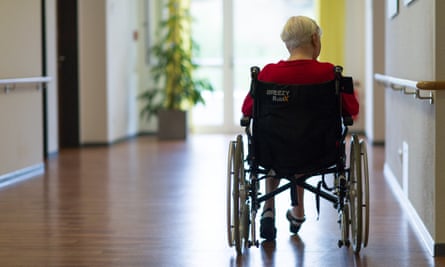The answer to this question may surprise you. Your life will begin when two important changes take place. Fortunately, these changes are totally within your control. They are attitudes, not circumstances, and both have been chosen by you rather than imposed upon you, although you may not be aware of having made those choices.
The first impediment to living fully right now is the belief that you need to consider all possible options before you commit to anything. We believe in choice – when asked, most people will tell you that it’s better to have lots of choices. That way, most people will say, you’ll make a better decision, and feel happier and more satisfied as a result.
In fact, the opposite is true. The more choices we’re given, the less able we are to make a decision – and if we do choose, the less satisfied we are with what we’ve chosen. I see this often in my clinics, particularly among the newly retired.
They inevitably tell me that they’d been looking forward enormously to having unstructured time and the ability to choose freely how to spend that time. Yet what often happens is that they find to their surprise that, rather than choosing an activity and getting on with it, they can’t figure out what to do first. As a result, they feel overwhelmed and demotivated, unable to make even small decisions.
The clearest challenge to our belief in choice is a study that has come to be known as “the jam experiment”. In the late 1990s, researchers led by Sheena Iyengar at Columbia University set up a tasting stall in two grocery stores. Customers who came into the shop were invited to taste – and then hopefully to choose – a particular flavour of jam (and in a later experiment, a type of chocolate). In one store, customers were offered a choice of six, and in the other store, a choice of 30 flavours.
When asked, everyone agreed that it’s best to have lots of choice. However, the customers who were offered 30 choices were 10 times less likely to make a choice than were customers who were given only six choices. Furthermore, of the customers who did make up their minds, those in the 30-choice condition were more dissatisfied and regretful of the decision they’d made than were those who were offered fewer choices.
The first step, therefore, that will allow you to begin your life now is to stop searching for as many possibilities as you can find and agonising over which one to choose.
The second impediment to beginning your life now is the belief that you can control your future, and that you should therefore map it out carefully. It’s impossible to know the future precisely. No amount of planning will clarify what’s inside the crystal ball. What you can do, however, is to choose the attitude you’ll have about the circumstances in which you find yourself. Either you can bemoan your fate, and wait and hope for something “better”, or you can decide to turn whatever is happening in the present moment to best advantage – and live it.
Never have I seen this so clearly as when I graduated from college. My friends and I all had some dreams and plans of course, but none of us was as clear as my friend Sarah. She announced that she wanted to become a reporter for the New York Times. She seemed undeterred when she discovered that there no jobs going at the New York Times. Instead, she took herself off the following day to their headquarters, sat down in the lobby, and began to practice some writing. After an hour or so, the receptionist became curious and asked her why she was there.
“I’m looking for a job,” was her reply.
The receptionist explained that there were no jobs currently on offer, to which Sarah replied, “That’s OK. I’ll just sit here and wait.”
And she carried on writing. At closing time, exasperated, the receptionist called in an editor. Sarah repeated her request. The editor reaffirmed that there were no reporter jobs, but still Sarah wouldn’t leave. The editor then offered her the only job going – to stack newspapers as they came off the press, ready for delivery, from midnight until six each morning. Sarah took the job. Within a year, she was working full time as a reporter for the New York Times.

The idea that we can control what’s happening or going to happen to us is the enemy of pain relief. I often see patients who are suffering from chronic pain, which neither medication nor surgery seems able to relieve. Inevitably, these individuals are tense and unhappy, fighting against their pain. When instead I invite them to investigate the pain, to think about how it feels and where precisely it is located, they relax and report some relief. Because they’ve also freed up some of the energy they were using to fight pain, they find that they’re also able to start doing, in a limited way, activities they enjoy. One of my colleagues makes excellent use of this approach with what she calls “chair yoga”. She and a physiotherapist regularly visit local care homes where they encourage residents in wheelchairs to try some modified breathing and stretching exercises. The residents never seem to mind that they’re not doing “proper” yoga. Later, their carers report that the participants are more cheerful and sociable.
This attitude is the heart of the mindfulness movement, now so incredibly popular. Being mindful means to observe carefully and accept fully – without criticising or passing judgment – that which is, right now. Being mindful does not involve trying to control either the present moment or the future, but instead simply to be aware of your present circumstances. That way, instead of trying to create that which is not, you are in the best position possible to use that which is to best advantage.
I would like to close with the finest example I know of someone who decided to accept his lot and live his life right now, rather than hoping that “something better” would happen. This example comes not from my clinics, but from my own family.
When my eldest son was 13 and dying, his doctors told him that his only hope was to undergo a double lung transplant. We were told that the chance of recovery was not high. Nonetheless, my son decided to go ahead. He seemed certain, right up to the moment when the doctor was preparing to administer the anaesthetic. But then his determination wavered. Lying on the bed, he turned to me, suddenly fearful and tense, and asked, “Mom, do I have to go through with this?”
Before I could even begin to think what to say, he smiled. The fear left his eyes and he relaxed.
“No, it’s OK, mom. The doctors here are good, and they think I can make it. I can do this.”
And he extended his hand so the doctor could administer the anaesthetic. Today, 19 years later, he lives and works fully independently, and is, as far as we know, the longest living double lung transplant patient in the world.
When will your life begin? Now, if you so wish.

